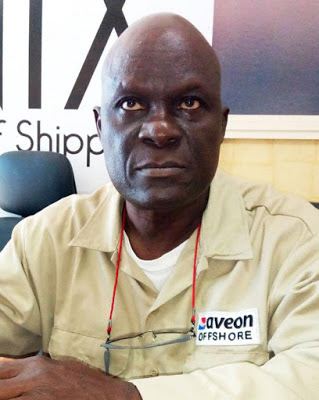The Nigerian Association of Master Mariners, NAMM has called for the establishment of the Merchant Navy Training Board to help in determining the training needs of the maritime industry in Nigeria.
The President of the association, Captain Tajudeen Alao who made this demand in an interview with Primetime Reporters in Lagos on Monday said that with the Board in place, there won’t be any need to just take people to go and train them without first determining the need of the industry and train them to serve the identified need.
According to him, “You don’t just carry people and go and train them and they are useless. Look at these boys from the Philippines, they are roaming around with certificates no job. Nobody can trust their assets. They trained in the coast, then, they have certificates, somebody has brand new GP23 offshore supply boat, anchor laying, cable laying, subject recovery, big expensive ship, they have no experience in it. It’s not the same as small coastal vessels.
“They don’t have experience on those ones, big passenger boats, big liner going international. So, they cannot export them, unless somebody is going to train them on that type of ship. The fact that they have certificates does not mean that they can man a ship and the ship has limited space.
“So, the Merchant Navy Training Board is the way to go to determine the industry need. We know the syllabus, it’s IMO, it’s STCW but the one for your inland water is in the Merchant Shipping Act. So, you look at the need. How many men do you need for offshore supply boat?
“The International Chamber of Shipping will tell you forecast because they are doing research. But we will just decide to take 2,000 or 3,000 cadets on the ground that we want to flood Nigeria. We have now flooded Nigeria but no ship for them to train. That’s why you need to work with this Board to know exactly what you need otherwise you overtrain people and they will have no value.”
He continued, “All the women cadets of those days, they are selling goods now because there’s no ship for them to go. And some ships they go in the coast, pirates entered the ship, black out, they have to go and run under the engine and they were discouraged. There were many women trained, in fact, Oron was training in maritime studies, 80 percent women to men.
“So, there’s need for whatever form of training, now they need higher certificate, NIMASA has not provided the higher grade. What we are producing is OOW, what these boys are bringing from the Philippines. So,we now said, we want to train senior officers, those who have the experience but have no money. We want to take them abroad, sponsor them, when they come back, they have higher certificates.
“Even to work as surveyors in NIMASA, in NIWA, NPA, lecturers in Oron. NIMASA is supposed to look at the industry from that angle. We need a lot of people not only people sailing and you cannot get them off the shelf, they must be trained and they must be trained for the industry.
“ExxonMobil employed Master Mariners, 12 or 13 of them in one week because they were available, spill over from the National Line. If they were not available, they will still be employing foreigners, flying them in and out of Nigeria every two weeks. In 1997, in one week, they employed about ten, in 1996, they employed, in 1998, they did the same. Chevron has so many Master Mariners, if somebody did not train them, they will not be available, foreigners will be doing the job.
“The industry needs Mariners because they are adaptable to any discipline to work. The shipping agencies, their counterparts are talking to in Singapore are Mariners, they speak the same language.”
Photo: Captain Tajudeen Alao, President, Nigerian Association of Master Mariners.
Send your press invite, news, press releases/articles to augustinenwadinamuo@yahoo.com. Also, follow us on Twitter @PrimetimeRepor1 and on Facebook on facebook.com/primetimereporters or call the editor on 07030661526.

